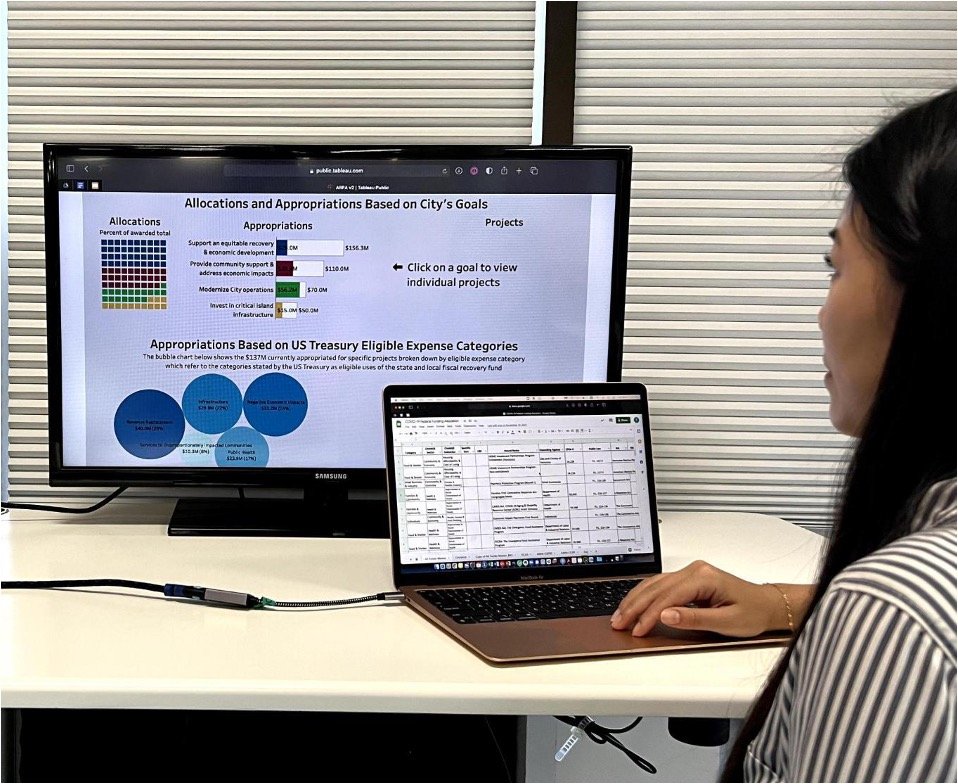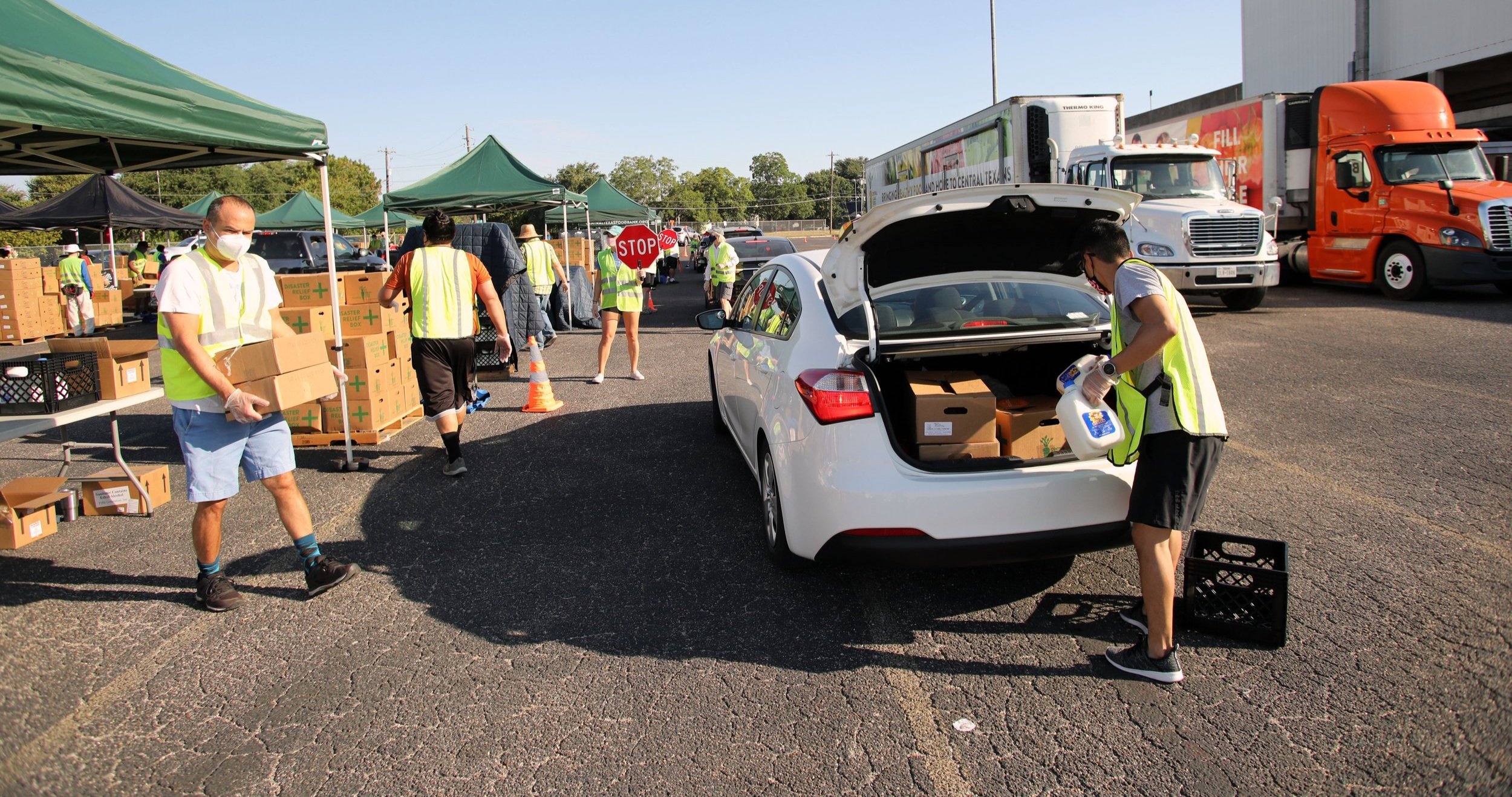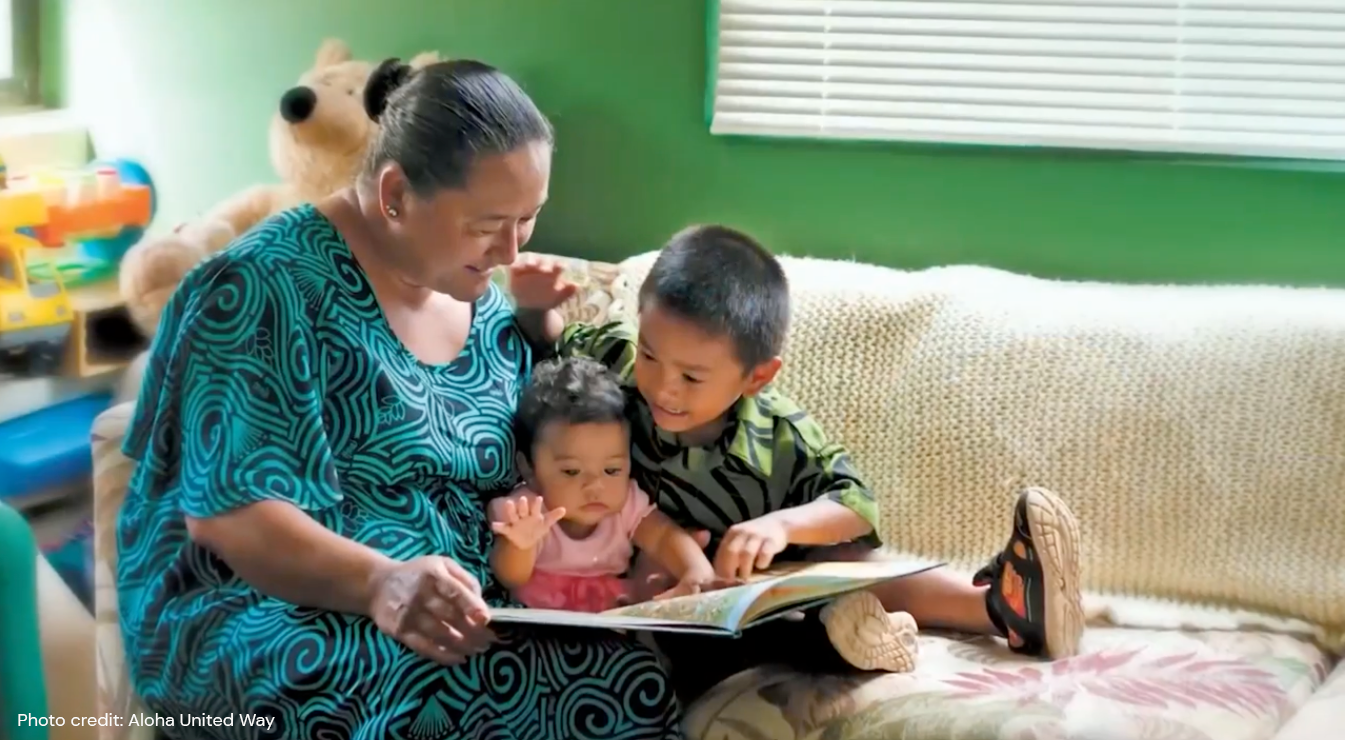News & Updates

Uplifting Nonprofit Service Provider Data to Support Struggling Households
In this new year, we continue to focus on collaborating with service providers, government agencies, and private sector funders working to support Hawai‘i households in need. While 2023 marks the start of our first official post-Covid year, data from a recent Aloha United Way (AUW) report suggests many who were struggling to get by prior to the pandemic may be faring much worse now. AUW conducted their interim study independently due to the lack of local and current data, as national sources we traditionally relied upon for understanding current household need would take years to access, making it difficult to extract insights and make decisions in a timely manner.
For an issue as important as household well-being, we should not be relying primarily on lagging national data sources. In order for data to be relevant, it needs to be timely. Otherwise, how will it guide our leaders to understand and address the unique challenges of households struggling to get by in Hawai‘i today?

Building Our Data Capacities to Respond to Household Need
Following the release of our first Hawai‘i Data Landscape report in early 2021, we set out to apply what we learned about the data challenges and opportunities to an urgent issue arguably only exacerbated by the pandemic: the struggle of households just trying to get by. Our decision to focus on data for those working to support households and communities in need led us to reach out to leaders across sectors with a guiding question: What are the opportunities for community to enhance its ability to gain and act on data insight to serve households in need?
We welcome you to read our 2022 Report to better understand Hawai‘i’s current data landscape around household need, and how we might move forward using data to work better together.

Start Collecting Data: A Guide to Accessible Tools for Nonprofits
Effective data collection can help you optimize virtually every aspect of your organization, and it doesn’t necessarily require costly tools, hires, or consultants. From marketing to fundraising to strategic planning, data supports nonprofits in being informed and decisive. The current generation of online survey tools and resources make it easy for nonprofits to enhance and leverage their data collection.

“The New Data Culture for Hawaiʻi” Discussed at the 2022 Hawaiʻi Book and Music Festival
Nick Redding, Executive Director of the Hawai‘i Data Collaborative, joined the Innovation Panel at the 2022 Annual Hawai‘i Book and Music Festival to discuss “The New Data Culture for Hawaiʻi,” highlighting the need for quality, timely data, our over-reliance on lagging national data sources, and how the Ko‘olau Housing Hui demonstrates investing in data capacities serves all stakeholders working to address housing security on the Windward side.

Maʻi Movement: Using Data to Identify an Issue, Legitimize It, Then Make Change
In 2018, Nikki-Ann Yee was living abroad and had never heard of period poverty. And yet, once named and defined, she recognized it affected far too many people who menstruate not only abroad, but also in Hawaiʻi.
When Nikki moved back to the U.S. in 2020 she connected with her two sisters, Brandy-Lee Yee and Jamie-Lee Kapana, over this issue and Maʻi Movement Hawaiʻi was born. Through passion, coalition-building, and data collection, Maʻi Movement went from being an idea to launching a school pilot program, implementing a statewide distribution system, and passing state legislation in less than two years.

Employment Opportunities with the City & County of Honolulu’s Office of Economic Revitalization
As our community continues to recover from the impacts of the pandemic, the City & County of Honolulu’s Office of Economic Revitalization has recognized the critical importance of data informing its strategy for building community resilience. To do so, OER is looking to add a Data Specialist and an Economic Data Strategist to their team - together, these roles will provide a much needed internal data capacity boost to spearhead OER’s efforts in developing creative, strategic ways to address gaps and innovate economic development solutions.

Uplifting Our Community Through Building Data Capacity
Over the past year, through our community partnerships, our team heard a consistent desire for capacity boosts to address organizational data challenges. Oftentimes, the challenge is so great that understanding where to even begin is the biggest barrier! At the Hawai‘i Data Collaborative, we aspire to be a gateway to a full spectrum of data support services to enhance the data capacities of organizations working to support households in need. We welcome you to read this blog post to learn more about how we support our partners in building their internal data capacities to unlock the data insights they need to inform their work.

Cultivating a Data Culture Is Mission-Critical At Waikiki Community Center
Earlier this year, we met with Caroline Hayashi, executive director of Waikiki Community Center, to learn about WCC’s work and how well data enables their ability to carry out their mission. Expecting to hear about the data challenges they experience, I was pleasantly surprised to learn that they consider data essential in their ability to do their work. And despite being a small team with limited access to funds, I was fascinated to learn about their commitment to refining and growing their services by employing a very simple data strategy that has continued to serve them well for the past nine years.

Two Accessible Data Management Solutions For Non-Profits
Finding the information you need quickly is critical for any organization. A good data management system not only improves efficiency by eliminating manual processes, but also allows organizations to leverage and optimize the use of the data they collect to make decisions and take action. If your organization’s data management processes have become more of a cumbersome distraction to work around rather than a solution to streamline your operations, a data management system could be the solution. This guide will help you choose the right data management system for your organization’s needs.

Aligning Data to Outcomes: Our Approach to Developing a Thoughtful Data Strategy
Whether it's providing health services to vulnerable kupuna in their homes or supporting keiki in classrooms, every organization can benefit from a thoughtful data strategy. Developed thoughtfully, a data strategy weaves data into an organization’s overall strategy and can be key to advancing your organization's mission. It identifies what types of data are important to your organization and how you will capture and evaluate data on an ongoing basis to adapt your services or programs. Over time, this approach to data can even shape your organization’s values, culture, and future strategic direction.

Working With Census Data Today
Many of us look to “Census data” to better understand the circumstances of households and communities in Hawai‘i. In his work to provide research and analysis support to local organizations, Kendrick Leong, Hawai‘i Data Collaborative’s Research & Data Analysis Lead, often helps teams reference several different Census products depending upon their specific need. Following the onset of the pandemic, Kendrick has also helped organizations understand and navigate the limitations of Census data for understanding circumstances today. In this post, Kendrick distinguishes some of the more popular Census data products, runs through what you need to know to work with them, and lays out some important limitations of using Census data today.

A Simple Guide to Data Visualization for Non-Profits
Data visualization is becoming an increasingly popular tool for organizations to share and make sense of their data. To help those interested in getting started with data visualization, Hawai‘i Data Collaborative’s data visualization and analysis lead, Tiana Tran, has created this guide that outlines the main considerations when choosing a visualization tool, points to resources for learning how to use that tool, and shares Tiana’s favorite resources for learning how to create effective visualizations.

Understanding Household Need: Our Data Support Tools & Resources
At the Hawai‘i Data Collaborative, one of our core priorities is improving data accessibility. As our state works to recover from the far-reaching economic impacts of the COVID pandemic, those working to support Hawai‘i's households in need of assistance need access to relevant and timely data now more than ever. Recognizing this need, we have developed a suite of tools and resources that make data more accessible for communities, non-profits, policymakers and other working to support Hawai‘i's households struggling to get by.

Our Focus on Household Need Data in 2022
Over the past almost two years, we have frequently been asked to support another critical data challenge: how to identify and gain insight from data to understand households in need of assistance. Late last year, we interviewed multiple leaders of organizations supporting households in need to understand how readily they are able to gain insight from the data they collect while doing their work, and the extent to which they are able to effectively share data amongst peer organizations, government agencies and private sector funders to gain broader insights. We learned a lot from these discussions, inspiring us to make household need data our focus for 2022.

Hawai‘i Data Collaborative Launches New Tool: Hawai‘i Data Explorer
Data in Hawai‘i is hosted in numerous places that may not be easy to find, and Google searches often do not point us in the right direction. In response to this need, we have developed the Hawai‘i Data Explorer, a tool to connect users with publicly available data on Hawai‘i household well-being.

Hawai‘i Data Collaborative at the 16th Hawai‘i Book & Music Festival
Nick Redding, Executive Director of the Hawai‘i Data Collaborative (HDC), was invited to join two panels at the 16th Annual Hawai‘i Book and Music Festival.
The first panel took place on October 5th, and included experts in healthcare, public health, and data to discuss Lessons for Future Pandemics. The second panel took place on October 28th, and included data experts to discuss Big Data Visualization.

Open Access to Hawaii.PolicyMap Renewed for Another Year
We are pleased to announce that open access to Hawaii.PolicyMap will continue to be available for another year, thanks to the generosity of The Harry & Jeanette Weinberg Foundation, Hawai‘i Energy, and Hawai‘i State Department of Health, who have come alongside the Hawai‘i Data Collaborative to sponsor the Hawaii.PolicyMap Enterprise License.

Hawai‘i Community Foundation and Hawai‘i Data Collaborative Partner on the CHANGE Framework
The Hawai‘i Community Foundation (HCF) is working to disrupt the systems that have been driving inequities across the state using a data-driven approach through its CHANGE Framework, making robust data, analysis and reporting a fundamental component of the CHANGE Initiative. To support this effort, HCF and the Hawai‘i Data Collaborative (HDC) have partnered to add Emma Kern, CHANGE Research Specialist, to the HDC team.

Aloha United Way and Hawai‘i Data Collaborative Launch Enhanced 211 Dashboard
Aloha United Way (AUW), in partnership with Hawai‘i Data Collaborative, upgraded the data system supporting the 211 Program to ensure the data collected are accurate, and can be reliably leveraged to understand the areas in which Hawai‘i residents are struggling with in near real-time. With the upgrade complete and the data platform stabilized, we are excited to announce the launch of an enhanced AUW 211 Dashboard.

ALICE Conversation Series: Our Friends, Neighbors and ‘Ohana
On June 24, 2021, Aloha United Way (AUW) kicked off their ALICE Conversation Series with the first event “ALICE - Our Friends, Neighbors and ‘Ohana.” AUW’s community partners shared how they’re working to support ALICE, including Feed the Hunger Fund, Kokua Kalihi Valley, Parents and Children Together, and Waikiki Community Center. Nick Redding, Executive Director of Hawai‘i Data Collaborative (HDC), was also invited to present HDC’s work of filling timely data gaps so that those working to help ALICE can keep pace with the needs of ALICE as it evolves over time.
